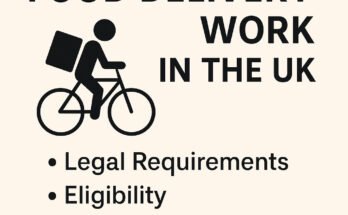In recent years, the UK has faced two major socio-economic upheavals: Brexit and the cost of living crisis. These developments have affected everything from politics and the economy to everyday life—and, increasingly, personal relationships.
The combined stressors of Brexit and the cost of living crisis are influencing how couples manage money, how families interact, and even how individuals form new connections. This article dives deep into the ways these pressures are reshaping modern UK relationships.
The Economic Ripple Effect on Relationships
Financial Strain and Domestic Tensions
Money is one of the most common causes of relationship tension. Post-Brexit economic instability, coupled with inflation, skyrocketing energy bills, and food prices, has created a new layer of financial anxiety in households.
According to a 2023 YouGov survey, nearly 45% of UK couples argue about finances at least once a month. For many, this isn’t just about budgeting—it’s about survival.
Rising rents, mortgage rates, and stagnant wages have left many couples struggling to meet basic needs, often forcing difficult decisions about housing, child care, and employment. These decisions, in turn, shape relationship dynamics, often increasing dependence or resentment.
Brexit’s Social and Psychological Fallout
National Identity and Interpersonal Conflict
Brexit has deeply divided the nation—and those divisions don’t stop at the front door. Many couples and families found themselves on opposite sides of the Brexit debate, which has caused friction and even breakups.
Research from Relate shows that politically charged disagreements, especially over Brexit, have led to increased tension and emotional distance in relationships. Some couples discovered that differing views on immigration, national identity, or the EU signalled deeper value misalignments.
Relationships with European Partners
Brexit has also affected binational couples. Freedom of movement changes have made it harder for British citizens to live and work with EU partners. Families face visa restrictions and bureaucratic red tape, straining cross-border relationships.
The Cost of Living and Modern Dating
A Shift in Dating Habits
Dating in the UK has changed dramatically in the wake of economic uncertainty. Apps like Tinder, Bumble, and Hinge report that users are being more upfront about financial status, goals, and expectations.
With many struggling to afford dates, the rise of “low-cost romance” is notable—park walks, home-cooked meals, and free museum trips have replaced dinner dates and weekend getaways. According to a Guardian article, daters are focusing more on emotional connection than grand gestures.
Value-Driven Partnerships
Economic pressure has made daters more pragmatic. There’s a stronger focus on financial compatibility, long-term planning, and emotional support. Many are looking for partners who share similar values around money and lifestyle.
Changing Family Dynamics
Multi-Generational Living
High housing costs have led to more families living under one roof. While this can promote bonding, it also raises challenges like privacy loss, intergenerational conflict, and blurred boundaries.
The Office for National Statistics (ONS) reports a significant increase in multi-generational households post-Brexit and during the cost of living crisis.
Co-Parenting and Custody Strains
Separated parents are also feeling the crunch. Child maintenance costs, commuting expenses, and schooling challenges have added stress to already complex arrangements. Some families have even been forced to move closer to reduce costs, affecting custody dynamics.
Mental Health and Emotional Wellbeing
Anxiety, Depression, and Relationship Breakdown
The psychological toll of Brexit and the cost of living crisis cannot be overstated. Financial insecurity and political disillusionment contribute to rising rates of anxiety and depression.
The Mental Health Foundation highlights how economic hardship is a major trigger for mental health issues, which in turn impact relationship satisfaction and stability.
Couples under chronic stress often experience decreased intimacy, increased irritability, and lower levels of emotional connection.
Counseling and Support Services
Relate, Mind, and NHS Talking Therapies have reported increased demand for couples counseling and mental health support. Services now often include financial planning advice as part of relationship therapy.
Coping Strategies and Resilience
Communication and Transparency
Open discussions about money, future goals, and political views are essential. Couples who practice transparency tend to be more resilient.
Budgeting Together
Creating shared financial goals and budgets fosters teamwork and reduces resentment. Apps like YNAB and Emma can help couples manage money collaboratively.
Seeking Help
Utilising services like Relate, Mind, and Citizens Advice can offer practical and emotional support.
Building Community
Connecting with others facing similar challenges can ease the emotional burden. Community groups, online forums, and social meetups provide a support network beyond the household.
Conclusion: Redefining Love and Partnership
Brexit and the cost of living crisis are undeniably shaping how Britons love, live, and relate. These forces, while challenging, are also inspiring people to re-evaluate what they truly value in relationships.
In a time of political and economic uncertainty, love, empathy, and collaboration have become not just romantic ideals but survival strategies. As the UK navigates its future, relationships will continue to adapt—growing stronger through communication, compassion, and mutual resilience.
Read more about UK’s life here




